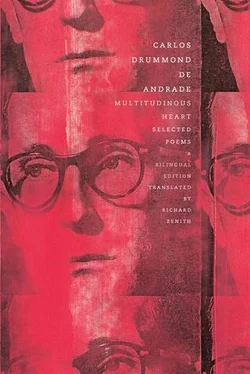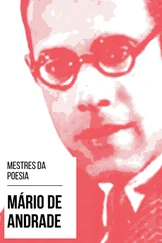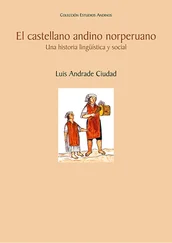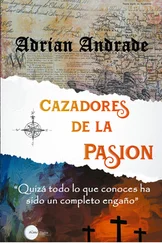Há oito. E todos minúsculos,
todos frustrados. Que flora
mais triste fomos achar
para ornamento de mesa!
Qual nada. De tão remotos,
de tão puros e esquecidos
no chão que suga e transforma,
são anjos. Que luminosos!
que raios de amor radiam,
e em meio a vagos cristais,
o cristal deles retine,
reverbera a própria sombra.
São anjos que se dignaram
participar do banquete,
alisar o tamborete,
viver vida de menino.
São anjos; e mal sabias
que um mortal devolve a Deus
algo de sua divina
substância aérea e sensível,
se tem um filho e se o perde.
Conta: catorze na mesa.
Ou trinta? serão cinquenta,
que sei? se chegam mais outros,
uma carne cada dia
multiplicada, cruzada
a outras carnes de amor.
São cinquenta pecadores,
se pecado é ter nascido
e provar, entre pecados,
os que nos foram legados.
A procissão de teus netos,
alongando-se em bisnetos,
veio pedir tua bênção
e comer de teu jantar.
Repara um pouquinho nesta,
no queixo, no olhar, no gesto,
e na consciência profunda
e na graça menineira,
e dize, depois de tudo,
se não é, entre meus erros,
uma imprevista verdade.
Esta é minha explicação,
meu verso melhor ou único,
meu tudo enchendo meu nada.
Agora a mesa repleta
está maior do que a casa.
Falamos de boca cheia,
xingamo-nos mutuamente,
rimos, ai, de arrebentar,
esquecemos o respeito
terrível, inibidor,
e toda a alegria nossa,
ressecada em tantos negros
bródios comemorativos
(não convém lembrar agora),
os gestos acumulados
de efusão fraterna, atados
(não convém lembrar agora),
as fina-e-meigas palavras
que ditas naquele tempo
teriam mudado a vida
(não convém mudar agora),
vem tudo à mesa e se espalha
qual inédita vitualha.
Oh que ceia mais celeste
e que gozo mais do chão!
Quem preparou? que inconteste
vocação de sacrifício
pôs a mesa, teve os filhos?
quem se apagou? quem pagou
a pena deste trabalho?
quem foi a mão invisível
que traçou este arabesco
de flor em torno ao pudim,
como se traça uma auréola?
quem tem auréola? quem não
a tem, pois que, sendo de ouro,
cuida logo em reparti-la,
e se pensa melhor faz?
quem senta do lado esquerdo,
assim curvada? que branca,
mas que branca mais que branca
tarja de cabelos brancos
retira a cor das laranjas,
anula o pó do café,
cassa o brilho aos serafins?
quem é toda luz e é branca?
Decerto não pressentias
como o branco pode ser
uma tinta mais diversa
da mesma brancura … Alvura
elaborada na ausência
de ti, mas ficou perfeita,
concreta, fria, lunar.
Como pode nossa festa
ser de um só que não de dois?
Os dois ora estais reunidos
numa aliança bem maior
que o simples elo da terra.
Estais juntos nesta mesa
de madeira mais de lei
que qualquer lei da república.
Estais acima de nós,
acima deste jantar
para o qual vos convocamos
por muito — enfim — vos querermos
e, amando, nos iludirmos
junto da mesa
vazia.
And you didn’t like parties …
But what a party, old man,
we’d throw for you today.
Your sons who don’t drink
and the one who loves drinking,
seated around the big table,
would forgo their sad diets
and forget their complaints,
we’d have good-hearted fun
and end up baring our souls.
You’d hear things, old man,
that would stun your ninety years.
We wouldn’t alarm you, though,
since with smiles on our faces,
the plump chicken, a choice
Portuguese wine, and a thousand
things from Nature’s bounty
that someone would prepare
and copiously serve up
in a thousand Chinese tureens,
we’d make you understand
that it was all in jest.
That’s right. Your tired eyes,
which are still able to read
across miles of field and spot
in those miles a calf gone astray
in the blue so blue,
would look into our souls
and see that rotten mud
and stare at us with sorrow
and curse us with fury
and gently forgive us
(forgiveness is a ritual
of parents as well as lovers).
Everything forgiven,
deep down you’d feel lucky
to have sons like us …
Truth is, you big old rascals
turned out a lot better
than I bargained for. Chips
off the old block, I guess …
Falling silent, with an arched
brow you’d call up a fond
and not entirely remote
memory, and laughing inside
and seeing how you’d thrown
a bridge from the crazy
pacing of your own father
to the horsing around of your sons,
knowing that all flesh
aspires to degradation,
but on a path of fire
and under a sexual spell,
you’d cough. Ahem, hey kids,
don’t be foolish. Kids?
A bunch of louts in our fifties,
balding, used up, burned out,
yet in our chests we preserve
intact that boyish candor,
that scampering into the woods,
that craving for things forbidden,
and the very simple wish
to ask Mother please to sew
not our shirts but rather
our torn and haggard souls.
What a great Minas dinner
it would be … We’d eat,
and eating would make us hungry,
and the food would be a pretext.
And even without any
appetite, we’d slice
and nibble until everything
was gone, tomorrow be damned.
Have some black bean tutu.
One more crackling, come on.
And the turkey? Fried manioc
flour needs to be washed down
with a shot of good cachaça,
and don’t forget the beer,
that true-blue companion.
Just the other day … Is eating
so crucial that only a fine
meal can bring to light
the best, most human part
hiding within us?
Is drinking so sacred
that only after he’s tipsy
can my brother tell me why
he’s miffed and shake my hand?
We guzzle, we gorge: how sweet
the smell of this food, how deep
run its Portuguese-Arab roots,
and how holy this drink
that makes us all a single
hundred-handed glutton,
braggart, and champion!
We even have the sister
who left us behind. A rose
by name, she was born
on a day just like today,
to make your birthday special.
She was a rose-amelia,
a name with a hint of camellia
and a much more delicate flower
than a rose rose, and she lived
much longer than her name,
but all the while she cloistered
the scattered rose. Beside you,
look: she blossoms again.
And here we have the eldest.
A quiet and devious sort,
he wasn’t priest material;
he loved immoralities.
Then time did to him
what it does to everyone,
and the older he gets
the more he’s your perfect
picture without being you,
so that if I unexpectedly
see him, it’s you who loom
before me in another
old man of sixty.
And here’s the learned lawyer,
the family college graduate,
but his most learned letters
are the ones written in blood
or on the bark of trees.
He knows the name of the tiniest
flower and of the rarest
fruit born from a genetic
marriage. He’s a city boy
who misses the wild outdoors
Читать дальше












